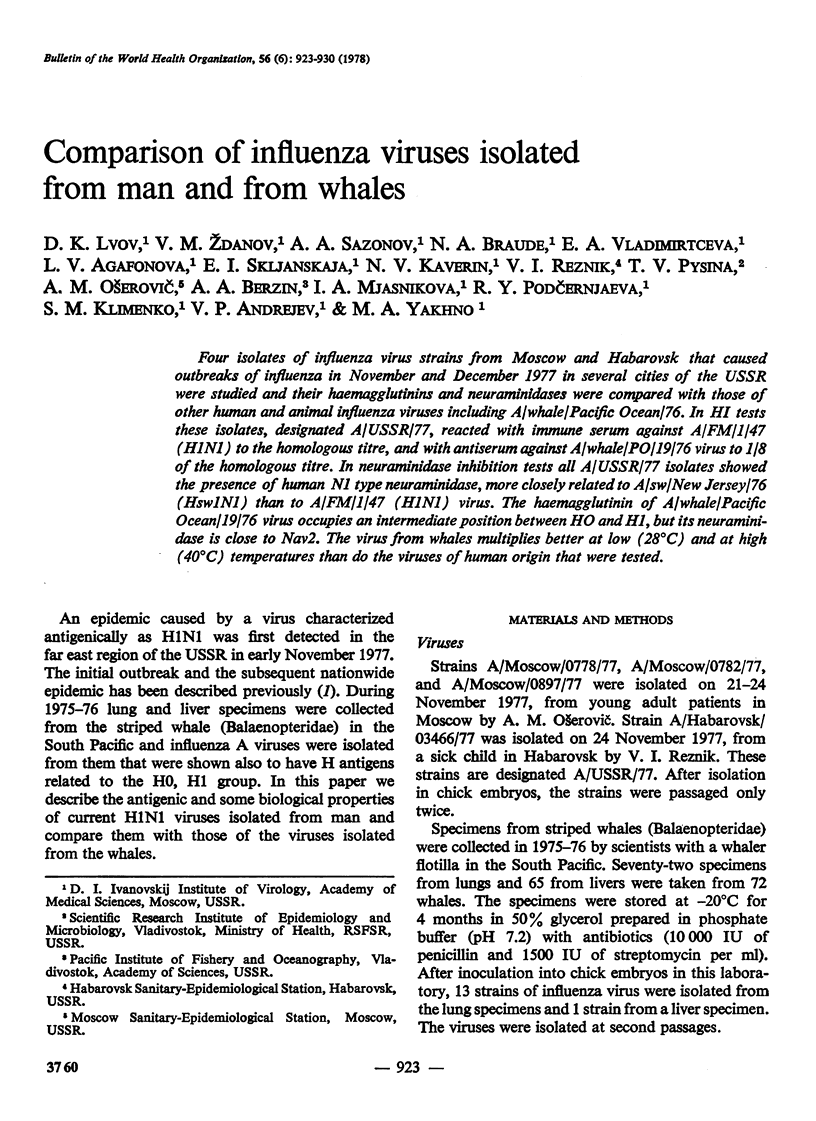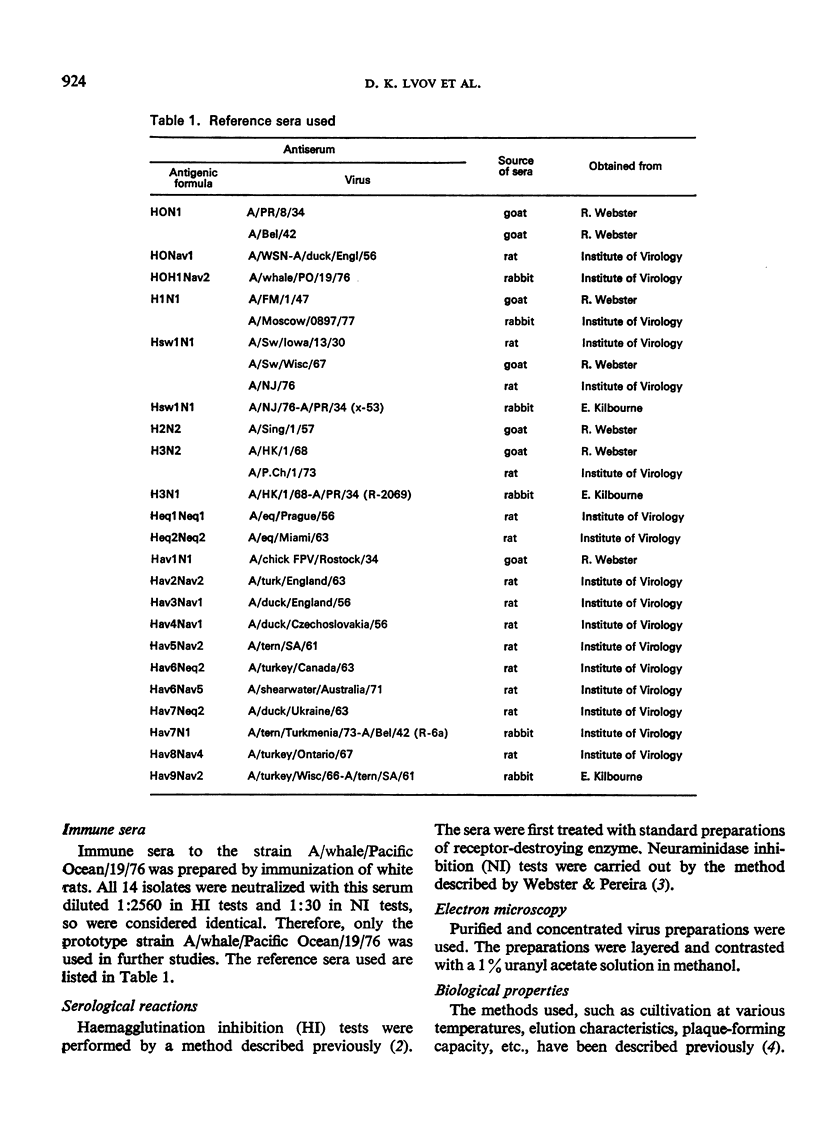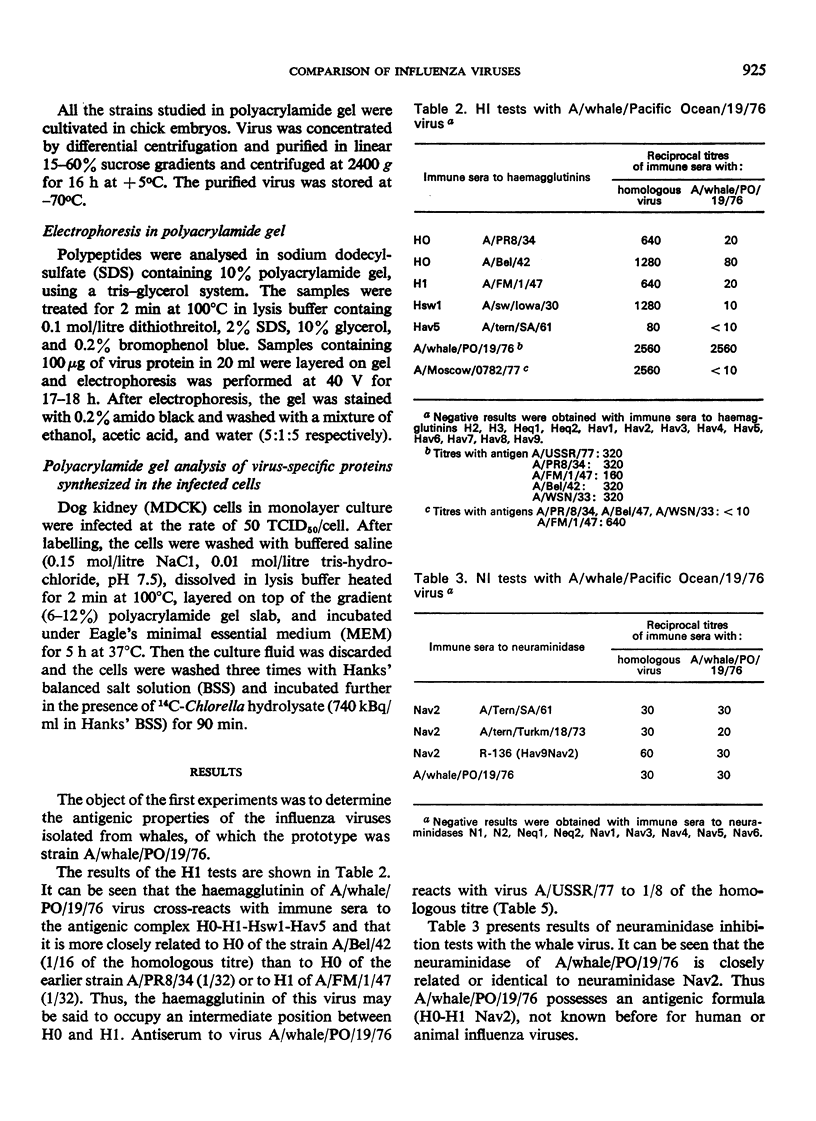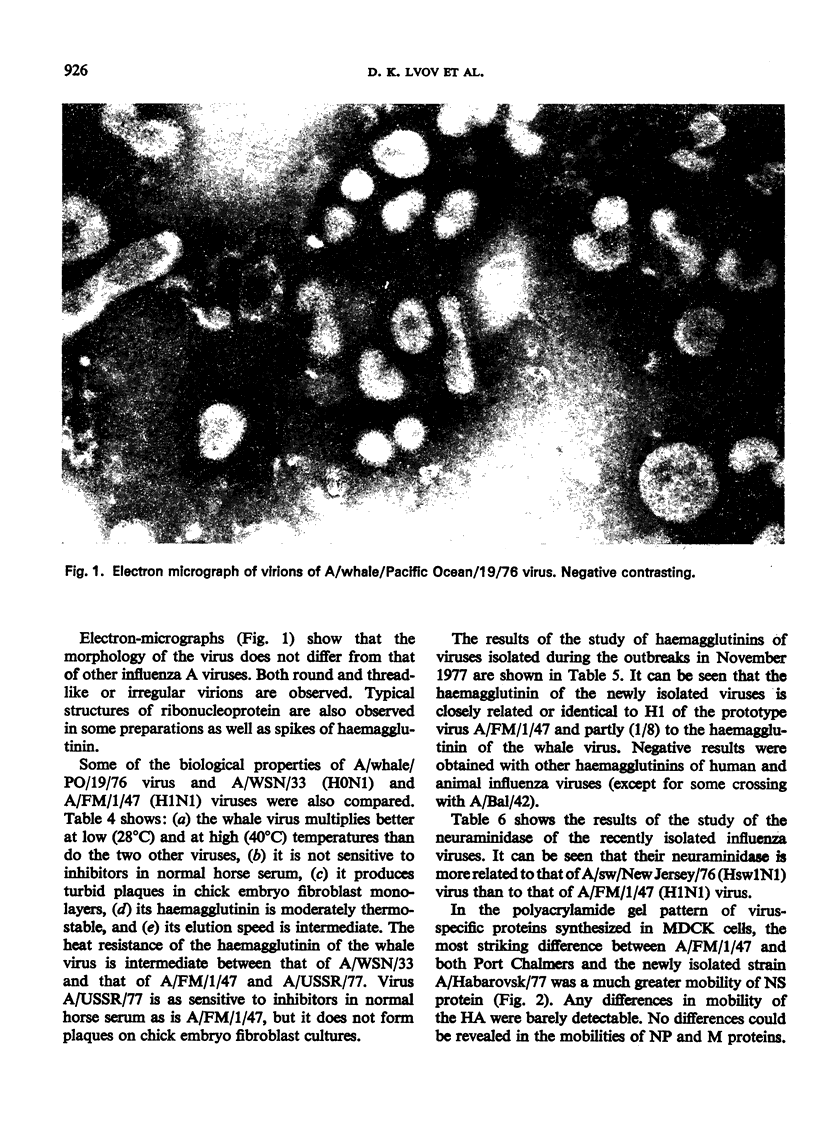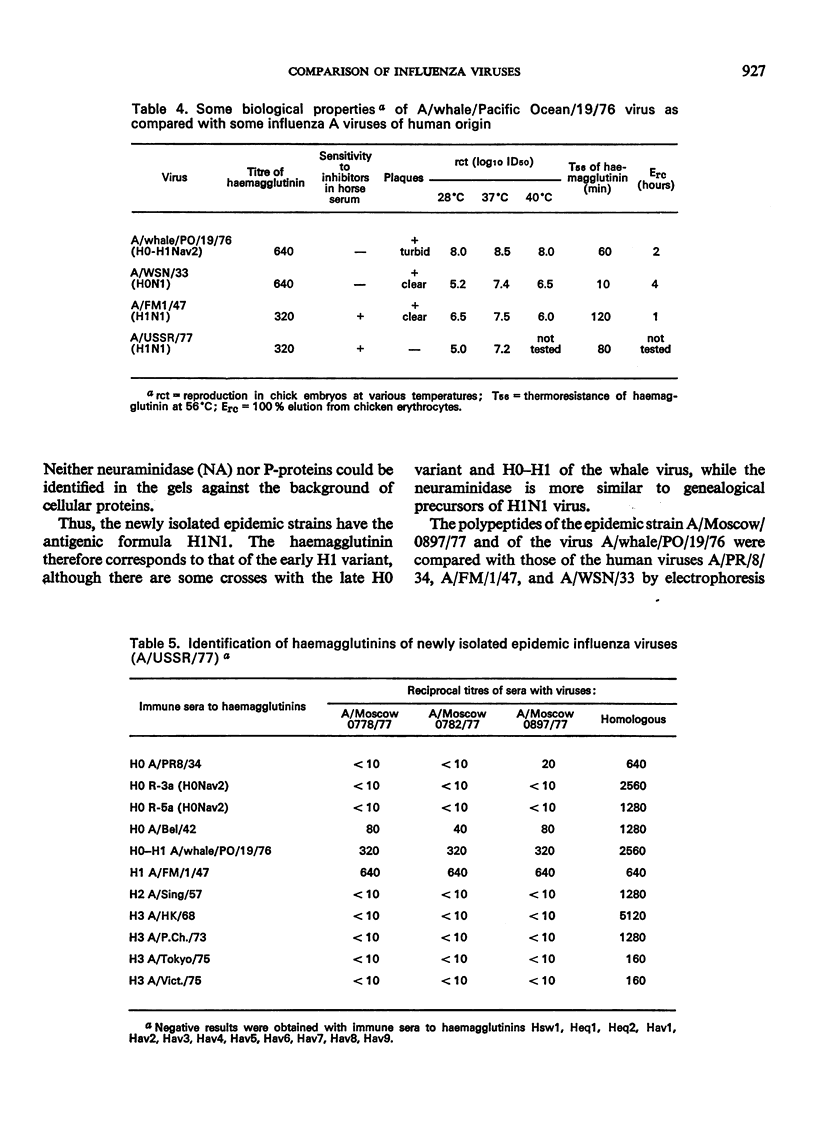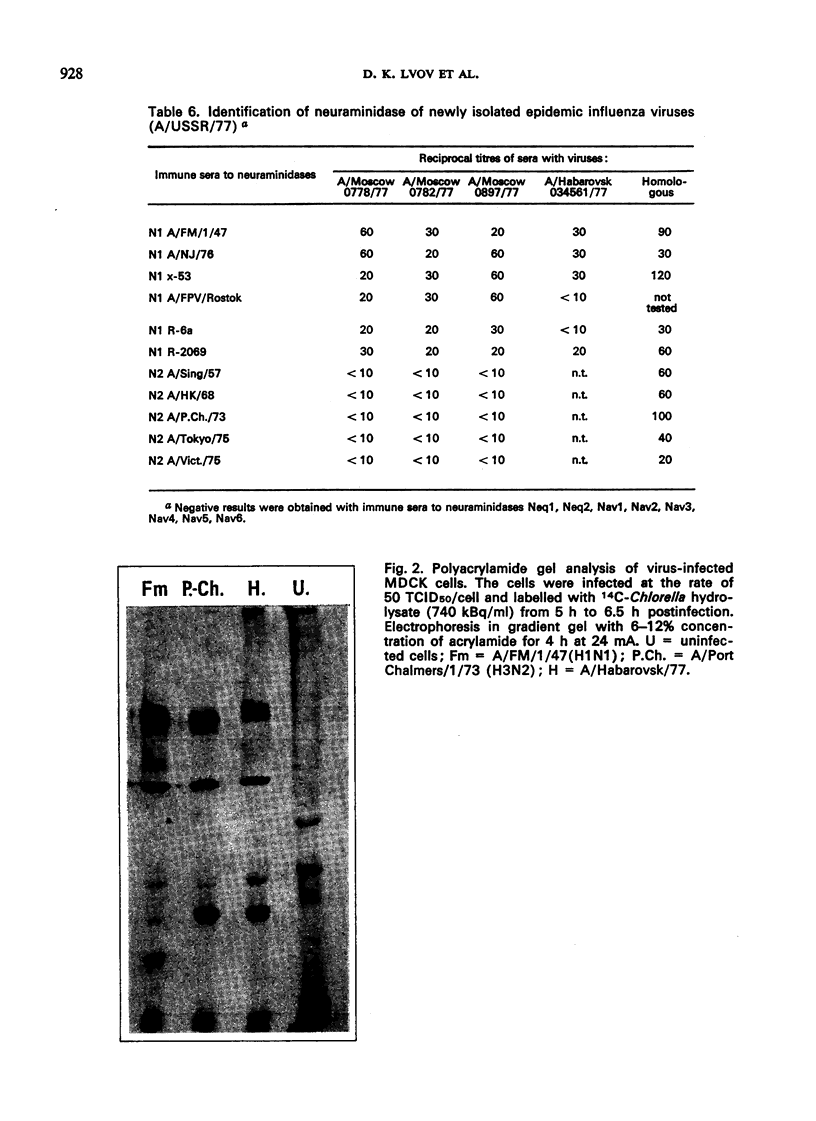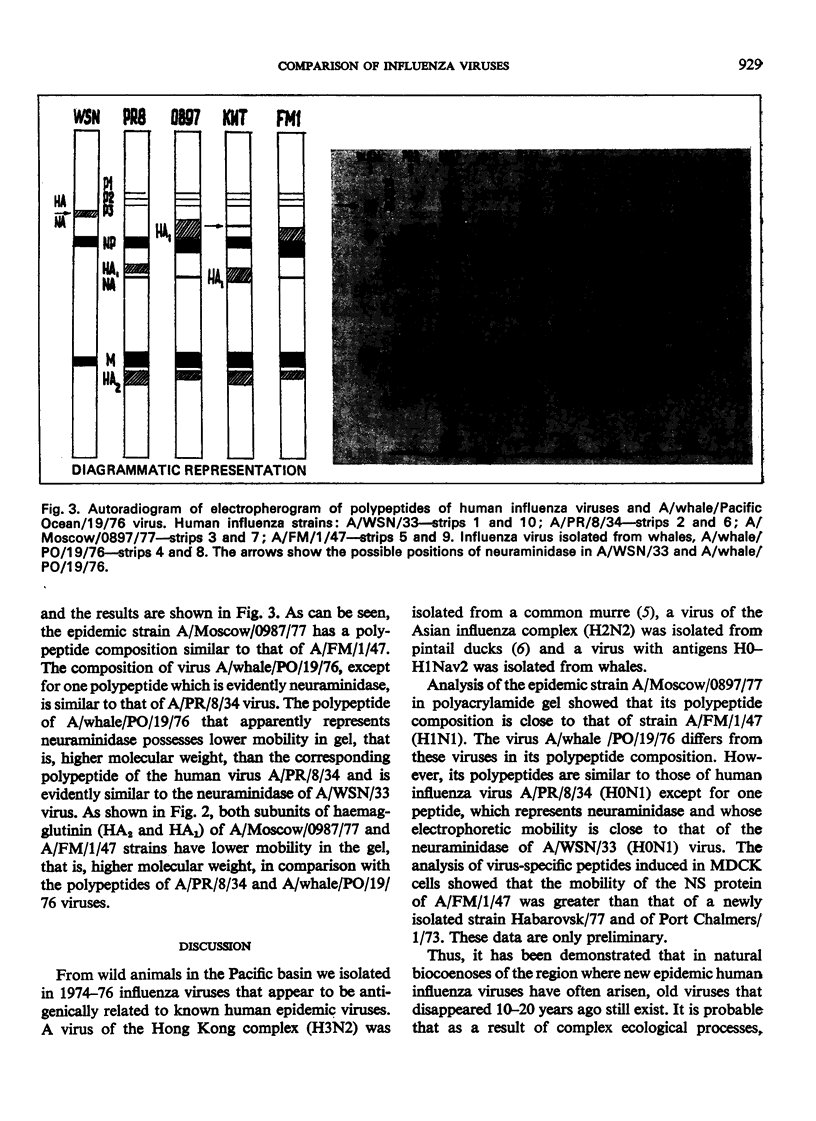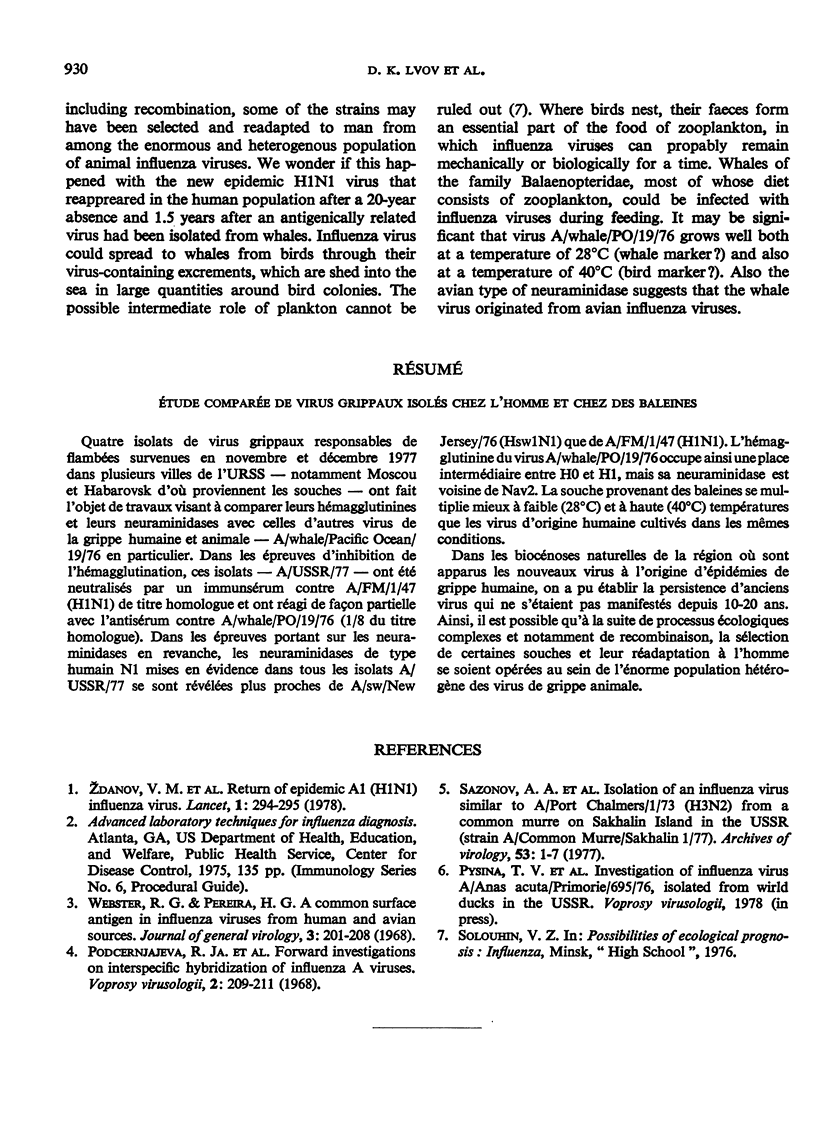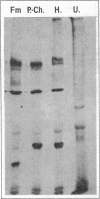Abstract
Four isolates of influenza virus strains from Moscow and Habarovsk that caused outbreaks of influenza in November and December 1977 in several cities of the USSR were studied and their haemagglutinins and neuraminidases were compared with those of other human and animal influenza viruses including A/whale/Pacific Ocean/76. In H1 tests these isolates, designated A/USSR/77, reacted with immune serum against A/FM/1/47 (H1N1) to the homologous titre, and with antiserum against A/whale/PO/19/76 virus to 1/8 of the homologous titre. In neuraminidase inhibition tests all A/USSR/77 isolates showed the presence of human N1 type neuraminidase, more closely related to A/sw/New Jersey/76 (Hsw1N1) than to A/FM/1/47 (H1N1) virus. The haemagglutinin of A/whale/Pacific Ocean/19/76 virus occupies an intermediate position between H0 and H1, but its neuraminidase is close to Nav2. The virus from whales multiplies better at low (28°C) and at high (40°C) temperatures than do the viruses of human origin that were tested.
Full text
PDF